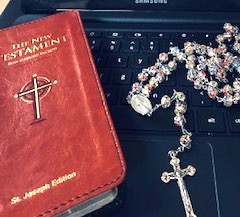
What is a Mentor in Literature?
The classic mentor is a wise and learned older person who takes the protagonist under his wing. He or she has usually been in the place or situation the protagonist is now. The Mentor ‘knows the ropes.’ If the main character is in a strange or fantasy world, the mentor often shows them the direction or the path they must take. The first mentor in literature and where the word mentor originates from was in an ancient Greek tale. During the ten-year Trojan War, Odysseus, the king of Ithica, left his wife Penelope and his son Telemachus to lead his army. He placed Telemachus under the care of a guardian called Mentor. It was Mentor’s job to teach and guide Telemachus. Hence, we have the prototype of the mentor character. Do you have to stick to the prototype? No, and you probably shouldn’t. You need to create an unusual and gripping character to fit your story. Remember, the supporting cast of your story is just as critical as your protagonist. Your mentor should be unique. However, there are some characteristics of the mentor in fiction that are classic.
What are the Characteristics of a Mentor Character?
- Mentors give advice and guidance. However, they cannot solve the story’s problem by themselves. Do not let your mentor overtake the importance and unique storyline of your protagonist. A mentor is an aid to the protagonist but doesn’t have enough of your hero’s qualities to follow the quest or advance the plot changes that are needed.
- Your mentor is usually a strange character, a loner, or a misfit. He or she often has significant flaws that prevent him or her from being accepted in everyday society. However, the mentor has just the information that the hero needs to go on their quest. Often it is the mentor that introduces the hero to the journey or quest.
- A mentor always puts the protagonist in the position to discover their talent or courage. They may use wise words to encourage the hero, but often enough, just point the way for the hero to find their own personal values and gifts.
- Mentors are usually trusted, but are there are many instances in literature where the mentor withholds vital information from the protagonists.
Who are some examples of Mentors?
In the classic children’s story, Charlotte’s Web, a barn spider uses her web for messages to aid and protect Wilbur, the pig. Charlotte, the spider, is a great but unusual mentor.
Think of Alfred Pennyworth in Batman. He is a father figure, advisor, and emotional support for Bruce. He helps him grow into the character Batman and supplies him with gadgets to perform his Batman tasks. Of course, there are many mentors in literature, such as Gandalf in Lord of the Rings, or Ben Kenobi in Star Wars. In my novel, Down Right Good, Moma is the mentor to Angie and her brother. She turns into the mentor for the entire town.
How do you develop your Teacher or Mentor Character?
Make your mentor unusual. Is he disheveled, unpopular, or a loner? Is she younger or older? Give your mentor a flaw. Maybe he is wise, but a coward. Perhaps she is a little jealous of the protagonist. Giving your mentor a defect gives stature to the protagonist and helps the reader understand why the mentor cannot be the hero. I always enjoyed the somewhat mad professor in Back to the Future. He may be brilliant, but he is too scattered and distracted to be the hero. Yet he guides and sometimes sends Marty McFly on journeys and adventures that are the basis of the story.
Think about your protagonist. How is he launched into the story? What kind of character can support your hero? In the young adult novel The Giver, which won the Newbery Medal in 1994, Jonas is guided into a learning journey by a character only known as “Giver.” He helps Jonas escape the falsely utopian world, which is the only world he knows. He guides Jonas into saving an innocent child. Put as much thought into your mentor character as you do to your protagonist. Many a novel found success because of the supporting characters.
Why Create a Mentor or Teacher Character?
A teacher can use dialog to give background and information to the reader comfortably without the author creating an “information dump” that would bore the reader and distract from the story. The teacher can share crucial information with the protagonist that solves a plot twist or adds to the tale’s tension. He can create a sharp contrast to your hero, letting the reader know the traits needed if the main character is to solve the main problem and emerge victoriously. He or she adds flavor to the story and points to why you may be writing the story. Do you want to impart faith or courage? Do you want to inspire or entertain? The teacher or mentor character is a great vehicle to use to meet this purpose. So take your time. Create a meaningful and memorable mentor for your work. From children’s books to classics, mentors or teacher characters are both beloved and remembered.
In our next blog, let’s discuss the adversarial character.